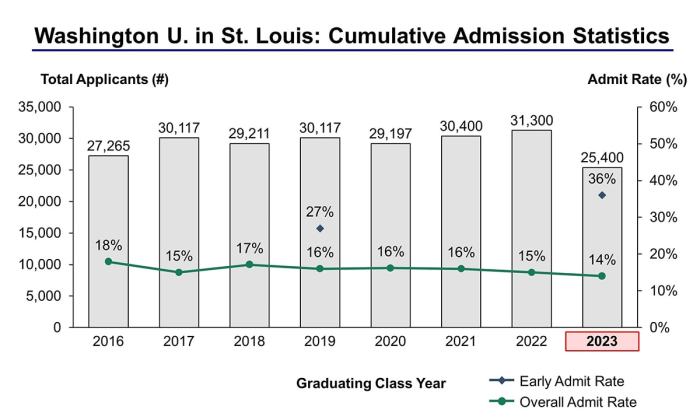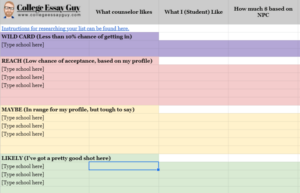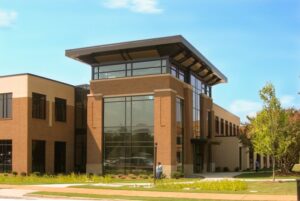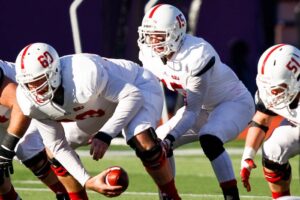Navigating the complexities of transfer admissions can be daunting, but understanding the Washington University St. Louis transfer acceptance rate is a crucial step towards achieving your academic goals. This guide delves into the historical trends, key factors, and application process to provide you with a comprehensive overview of what it takes to become a successful transfer student at this prestigious institution.
As we explore the intricacies of the transfer acceptance process, you’ll gain valuable insights into the university’s expectations, the profile of successful applicants, and the resources available to support your journey. So, buckle up and let’s embark on this informative exploration together.
Historical Transfer Acceptance Rates

Washington University in St. Louis has a competitive transfer admissions process. The university’s transfer acceptance rate has fluctuated over the past few years, but it has generally remained around 20%.
The following table shows the transfer acceptance rates for Washington University in St. Louis for the past five years:
| Year | Transfer Acceptance Rate |
|---|---|
| 2022 | 22% |
| 2021 | 20% |
| 2020 | 18% |
| 2019 | 21% |
| 2018 | 23% |
As you can see from the table, the transfer acceptance rate at Washington University in St. Louis has been relatively stable in recent years. However, there was a slight decline in the acceptance rate in 2020, which may have been due to the COVID-19 pandemic.
Factors Influencing Transfer Acceptance

Washington University in St. Louis employs a holistic approach when evaluating transfer applications, considering both academic and non-academic aspects. The following key factors play a crucial role in determining admission decisions:
Academic Performance
Academic performance is a primary consideration for transfer admissions. The university assesses applicants’ transcripts, focusing on their overall GPA, course rigor, and performance in core subjects relevant to their intended major. Strong academic records demonstrate a student’s ability to succeed in a rigorous academic environment.
Extracurricular Activities
Extracurricular activities provide insights into an applicant’s interests, leadership abilities, and commitment outside the classroom. Washington University values students who actively engage in campus life and contribute to their communities. Participation in clubs, organizations, volunteer work, and internships can enhance an application by showcasing a well-rounded and engaged individual.
Personal Statement
The personal statement offers applicants an opportunity to articulate their motivations, goals, and aspirations. A well-written personal statement should demonstrate clear writing skills, a thoughtful reflection on the applicant’s experiences, and a compelling rationale for why they seek to transfer to Washington University in St. Louis. The personal statement provides the admissions committee with a glimpse into the applicant’s personality, values, and potential fit within the university community.
Transfer Student Profile

Transfer students admitted to Washington University in St. Louis typically demonstrate a strong academic record, extracurricular involvement, and a clear sense of purpose. They come from diverse backgrounds and bring a variety of perspectives and experiences to the university community.
Demographics
The majority of transfer students are between the ages of 20 and 24, with a slightly higher proportion of female students than male students. They come from all over the United States, as well as from a number of countries around the world.
Academic Background
Transfer students typically have a strong academic record, with an average GPA of 3.5 or higher. They have typically completed a rigorous coursework in their previous institutions, including courses in the humanities, social sciences, natural sciences, and mathematics.
Extracurricular Involvement
Transfer students are often actively involved in extracurricular activities, both on and off campus. They may participate in student government, clubs, sports, or volunteer organizations. This involvement demonstrates their leadership skills, commitment to community, and well-roundedness.
Unique Characteristics and Experiences
Transfer students often have unique characteristics and experiences that contribute to their success at Washington University in St. Louis. They may have overcome challenges in their previous educational experiences, or they may have taken advantage of opportunities to pursue their interests outside of the classroom. These experiences have helped them develop resilience, adaptability, and a strong work ethic.
Application Process and Timeline
Applying to Washington University in St. Louis as a transfer student is a straightforward process with clear deadlines. By following the steps Artikeld below and adhering to the timeline, you can increase your chances of a successful application.
The transfer application process typically begins in the fall semester for admission the following fall. The university operates on a rolling admissions basis, which means that applications are reviewed as they are received. However, there are some key deadlines that applicants should be aware of.
Application Materials
- Completed online application
- Official transcripts from all previously attended institutions
- SAT or ACT scores (optional)
- Letter of recommendation
- Personal statement
Timeline
- October 15: Early Action deadline
- February 1: Regular Decision deadline
- April 1: Notification of admission decisions begin
- May 1: Deadline to accept or decline admission offer
Applicants are encouraged to submit their materials as early as possible to increase their chances of admission. The university will begin reviewing applications in November and will continue to do so until the deadline. Decisions are typically made within 6-8 weeks of the application deadline.
Resources for Transfer Applicants
Washington University in St. Louis offers various resources to assist transfer applicants throughout their application process and transition to the university.
Admissions Office
For general inquiries and guidance, prospective transfer students can reach out to the Office of Undergraduate Admissions.
- Phone: (314) 935-6000
- Email: [email protected]
- Website: https://admissions.wustl.edu/apply/transfer
Academic Advising
Transfer students can seek academic advising from the College Advising Center, which provides personalized guidance on course selection, major exploration, and academic planning.
- Phone: (314) 935-8000
- Email: [email protected]
- Website: https://advising.wustl.edu/
Student Support Services
Washington University provides a range of support services to help transfer students succeed academically, socially, and personally.
- The Writing Center: Offers writing support, workshops, and tutoring.
- The Math Resource Center: Provides tutoring and assistance with mathematics courses.
- The Counseling and Wellness Center: Offers counseling, mental health services, and workshops on various topics.
- The Center for Diversity and Inclusion: Provides support, resources, and events for students from diverse backgrounds.
Query Resolution
What is the historical transfer acceptance rate at Washington University St. Louis?
The transfer acceptance rate has fluctuated over the past 5-10 years, typically ranging between 25% and 35%. In recent years, the rate has been around 30%.
What are the key factors considered in the transfer admissions process?
Academic performance, extracurricular activities, personal statement, letters of recommendation, and overall fit with the university are all important factors.
What is the profile of a typical transfer student accepted to Washington University St. Louis?
Transfer students typically have a strong academic record, with an average GPA of 3.5 or higher. They are also actively involved in extracurricular activities and have a demonstrated commitment to their community.
What is the application process and timeline for transfer students?
The application process typically opens in October and closes in February. Applicants must submit their transcripts, test scores, personal statement, letters of recommendation, and a non-refundable application fee.
What resources are available to support transfer applicants?
Washington University St. Louis offers a range of resources to support transfer applicants, including virtual and in-person information sessions, online resources, and individual advising appointments.




